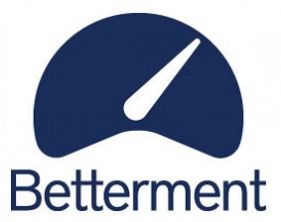Whether you simply love animals or you’re looking for more diversified investment options for your portfolio, there are some fantastic and terrible investments related to the animal and pet industries.
As Forbes reports, the value of the pet care industry is skyrocketing, thanks to more and more Americans opting to have dogs, cats, and horses instead of children. As of 2017, the pet care industry is worth nearly $70 billion in the U.S. alone, as pet owners add more four-legged members to their families and spend money on everything from pet clothing to customized bedding for their animals.
In addition to the pet care market, livestock and agricultural markets appear to be on the upswing thanks to growing consumer demand. If you’re ready to invest in new stocks, ETFs, or even animals themselves, here are some of the best and worst investments you might run into.
Best and Worst Investments Related to Animals
Best: Livestock
It’s never too late to start investing in unusual commodities like livestock, which are typically traded through ETFs, stocks, and futures. The most popular livestock ETF is iPath Dow Jones-UBS Livestock Total Return ETN (COW).
You can also invest in Livestock Wealth, which lets investors purchase pregnant cows and earn dividends from the sale of calves. The livestock industry is projected to grow significantly over the next several years. So now is the best time to get into this market while there are still few investors cashing in on this opportunity.
Worst: Pet Food Companies
Many major pet supply retailers like PetSmart and Petco are privately owned. But there are still some options for investing in pet food and care products. However, major corporations like Nestle and J.M. Smucker Co. own several of the major pet food brands, so you likely wouldn’t be investing directly in pet food companies.
Not that you want to invest in pet food at the moment, anyway. In early 2018, the J.M. Smucker Company publicly admitted there were traces of euthanasia drugs in their canned pet food, and Blue Ridge Beef recently recalled their raw pet food over concerns of listeria and salmonella contamination.
With so many pet food recalls recently, consumers are losing trust in these companies. This has led to greater volatility of share prices for these companies lately. Since you never know which pet food company might have to publicly recall their food next, it’s best to avoid these types of investments for the time being.
Best: Genetic Research and Technological Developments
The market for veterinary research and animal genetic testing is currently booming. Some reports claim the global animal genetics market could grow approximately 8.4% annually, with a projected value of $5.5 billion by 2021.
This market includes R&D in the field of veterinary medicine to help pet owners and animal breeders improve the health and well-being of their four-legged companions.It also includes genetic testing to improve the quality of meats, eggs, and other animal products that humans consume.
This market is ideal for investors because the growth potential is enormous and it strives to improve the quality of life for animals. For example, Kindred Biosciences has experienced a 77% increase in their share value in the span of a year. This is thanks to their innovative research projects related to therapeutic biologics technologies. That research leads to improvements in veterinary medicine. Although some socially conscious investment options might not offer the best ROI, animal genetic research and development is a different story for investors.
Worst: Racehorses
If you love horses or gambling as a side hobby, then investing in racehorses might seem like a natural fit for your portfolio. However, racehorses are extremely risky investments. Many investors lose money unless they’re multimillionaires who can cushion the blow of several losers for every winning horse.
For instance, small-time racehorse investors can buy a 5% stake in a horse for $15,000-30,000. This, of course, depends on several factors, including the cost of the horse plus its training and racing history.
You may also get billed tens of thousands of dollars per year for the horse’s stabling, feeding, training, and veterinary bills. If your horse ultimately never wins purse money from a race during its career, then you’ve essentially just sunk thousands of dollars into an investment with little to no returns.
While there are some tax incentives for racehorse owners, this is one of the worst possible investments you can make, especially given the nightmarish ethics of the racehorse industry.
Even Rob Gronkowski has gotten into the act. Rob Gronkowski bought himself a minority share in a thoroughbred racehorse that bears his name and is set to run in the Kentucky Derby in 2018. Is it a publicity stunt, or another example of athletes wasting their money. Maybe it won’t be long before Rob Gronkowski joins the ranks of famous athletes who went bankrupt.
Investing in the pet care industry is likely to remain a solid strategy for your portfolio, as the Millennial Generation increasingly opts for owning pets over having children. This means there is a vibrant future ahead for pet care and veterinary technological advancements, but not so much for pet food brands and racehorses. With this information in mind, you can finally craft an animal-friendly investment portfolio and maximize your ROI for best results.
If you’re looking for places to keep traditional investment accounts, you might want to check out investing with Betterment or Stash Invest.



